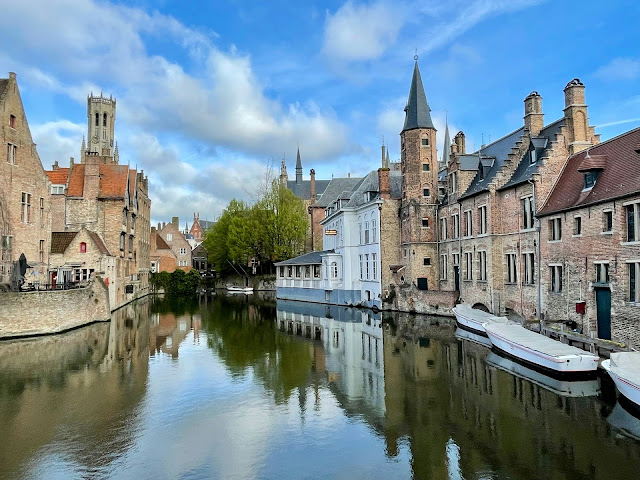Exploring the Mind: How Traveling Shapes Your Brain
Embarking on a journey to new and unfamiliar destinations does more than just satisfy our wanderlust. It has a profound impact on our brains, shaping our cognitive abilities, emotional well-being, and overall perspective on life. From the moment you step foot in an unknown place, your brain enters a state of heightened awareness and stimulation, triggering a cascade of changes that can leave a lasting imprint on your mind.
1. Neuroplasticity and Adaptation
One of the most remarkable aspects of traveling is its influence on neuroplasticity – the brain's ability to reorganize itself by forming new neural connections. When you explore new environments, engage with different cultures, and navigate foreign landscapes, your brain is constantly processing novel information. This stimulates the growth of new neural pathways, enhancing your cognitive flexibility and adaptability.
The brain's plasticity is particularly evident when learning a new language while traveling. The effort to communicate in unfamiliar tongues strengthens neural connections, potentially leading to improved memory and problem-solving skills.
2. Enhanced Creativity
Stepping outside your comfort zone and experiencing diverse cultures can significantly boost your creative thinking. Exposure to new ideas, art forms, and ways of life sparks fresh perspectives, allowing your brain to make unique connections between seemingly unrelated concepts. This newfound creativity can extend beyond your travels and positively impact various aspects of your daily life.
3. Stress Reduction and Mental Health
Traveling provides a much-needed escape from the daily grind and can greatly reduce stress levels. Experiencing different environments and engaging in leisure activities can lead to the release of dopamine, a neurotransmitter associated with pleasure and relaxation. Moreover, disconnecting from work and routine during vacations allows your brain to recharge, leading to improved focus and productivity upon your return.
4. Broadened Perspective
As you immerse yourself in different cultures, your brain develops a more open-minded and empathetic outlook. Exposure to diverse viewpoints challenges preconceived notions, fostering a greater understanding of the world's complexities. This expanded perspective not only enriches your personal growth but also contributes to a more interconnected global community.
5. Memory Enhancement
Memories of your travels are often more vivid and lasting compared to routine experiences. This phenomenon is attributed to the brain's engagement with new and unique stimuli. As you explore unfamiliar territories, your brain forms associations between sensory inputs and emotions, resulting in more memorable experiences. These memories can be a source of joy and inspiration throughout your life.
The impact of traveling on the brain is a testament to the remarkable flexibility and adaptability of our minds. From enhancing creativity to reducing stress and broadening perspectives, every journey leaves an indelible mark on the neural landscape. So, whether you're hiking through lush rainforests, wandering ancient streets, or simply basking on a pristine beach, know that your brain is soaking in the adventure and using it to shape the way you think, feel, and perceive the world.
Can travel change the way my brain works?
Absolutely! Traveling exposes your brain to novel experiences, stimulating neuroplasticity—the brain's ability to form new connections. This can enhance cognitive flexibility and adaptability.
Does travel enhance creativity?
Yes, travel can spark creativity by exposing you to different cultures, art, and perspectives. Engaging with new ideas and experiences can help your brain make unique connections between concepts.
How does travel impact stress levels?
Traveling offers a break from routine, reducing stress. Exploring new places triggers the release of dopamine, a neurotransmitter associated with pleasure and relaxation.
Can travel broaden my perspective?
Absolutely. Immersing yourself in different cultures challenges your existing viewpoints, promoting empathy and open-mindedness. This broader perspective can enrich your understanding of the world.
Why are memories of travel so vivid?
Travel memories often stand out due to the brain's engagement with new sensory inputs and emotional experiences. The unique associations formed during travel contribute to more vivid and lasting memories.




Comments
Post a Comment
It's easy to leave a comment on our blog – anyone with a Google account can do it. We invite you to share your experiences by leaving a comment as well.